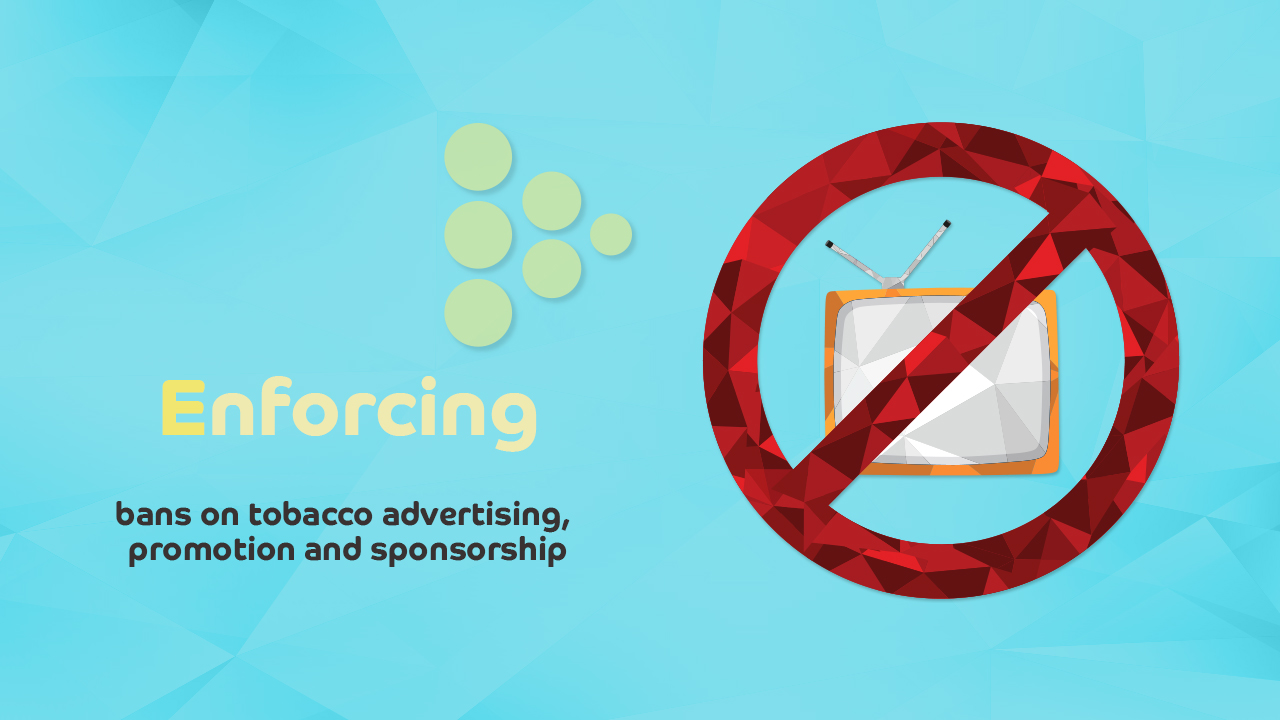
Context
Saudi Arabia ratified the WHO Framework Convention on Tobacco Control (FCTC) on 9 May 2005. In an effort to restrict tobacco advertising, promotion and sponsorship, the country has implemented various regulations. However, certain areas remained unaddressed, including the promotion and advertising of tobacco products on national and international television, radio, movies, billboards and the internet. Additionally, the distribution of free tobacco products, promotional discounts, brand sharing and brand stretching were not prohibited. Furthermore, sponsorship and corporate social responsibility initiatives by tobacco companies were not restricted.
Initiative
As a measure to acknowledge the risks associated with tobacco advertising, promotion and sponsorship, Saudi Arabia introduced a Royal Decree in 2017. This decree has positioned Saudi Arabia at the forefront of countries actively enforcing bans on all forms of tobacco advertising, promotion and sponsorship, as confirmed by the WHO Report on the Global Tobacco Epidemic of 2019. The legislation, particularly Article 10 and its accompanying executive regulations, explicitly prohibit any form of direct or indirect tobacco advertising, promotion or sponsorship across various media channels within Saudi Arabia. This includes audio, visual and print media as well as electronic platforms and websites. Furthermore, any depiction of tobacco use or related products must be removed from films, television series, programmes, print materials (including electronic versions) and any content that could potentially encourage smoking in Saudi Arabia.
The regulations stipulate that individuals or entities found in violation of these provisions may face a fine of at least 5000 Saudi Arabian Riyals or more. Additionally, the Ministry of Commerce has established a dedicated department responsible for monitoring compliance with the ban on tobacco advertising, promotion and sponsorship across all media channels, such as newspapers, radio, television, films, series and various electronic platforms.
Challenges and lessons learnt
Monitoring electronic commerce poses a significant challenge, particularly in overseeing the multitude of sales platforms, especially those reliant on individual sellers like Instagram and similar platforms. To address this issue, the Ministry of Commerce has established a dedicated team specifically trained for this purpose. The National Tobacco Control Committee conducts regular training and development programmes for field teams to effectively handle the various violations outlined in the executive regulations of the tobacco control system. An additional measure is the use of the National Tobacco Control Committee's application, which enables consumers to report violations, subsequently allowing investigators to process these notifications.
Impact
The precise assessment of the ban's direct impact has not been measured. However, the National Tobacco Control Committee, in collaboration with the ministries of commerce and culture, and the Communications and Information Technology Commission, assumes the responsibility of overseeing the effective implementation of the ban on tobacco advertising, promotion and sponsorship. The control team under the National Tobacco Control Committee is tasked with identifying violators and imposing fines in accordance with the regulations, while also ensuring the removal of any violations encountered.
Next steps
Moving forward, the National Tobacco Control Committee is committed to regularly revising the regulations to address any potential loopholes that tobacco companies may exploit. Furthermore, the committee aims to enhance notification systems and strengthen mechanisms for identifying and apprehending violators of the tobacco control measures.
References
MPOWER measures to reduce demand for tobacco
WHO Framework Convention on Tobacco Control
WHO Report on the Global Tobacco Epidemic 2019
Story originated in 2019.


